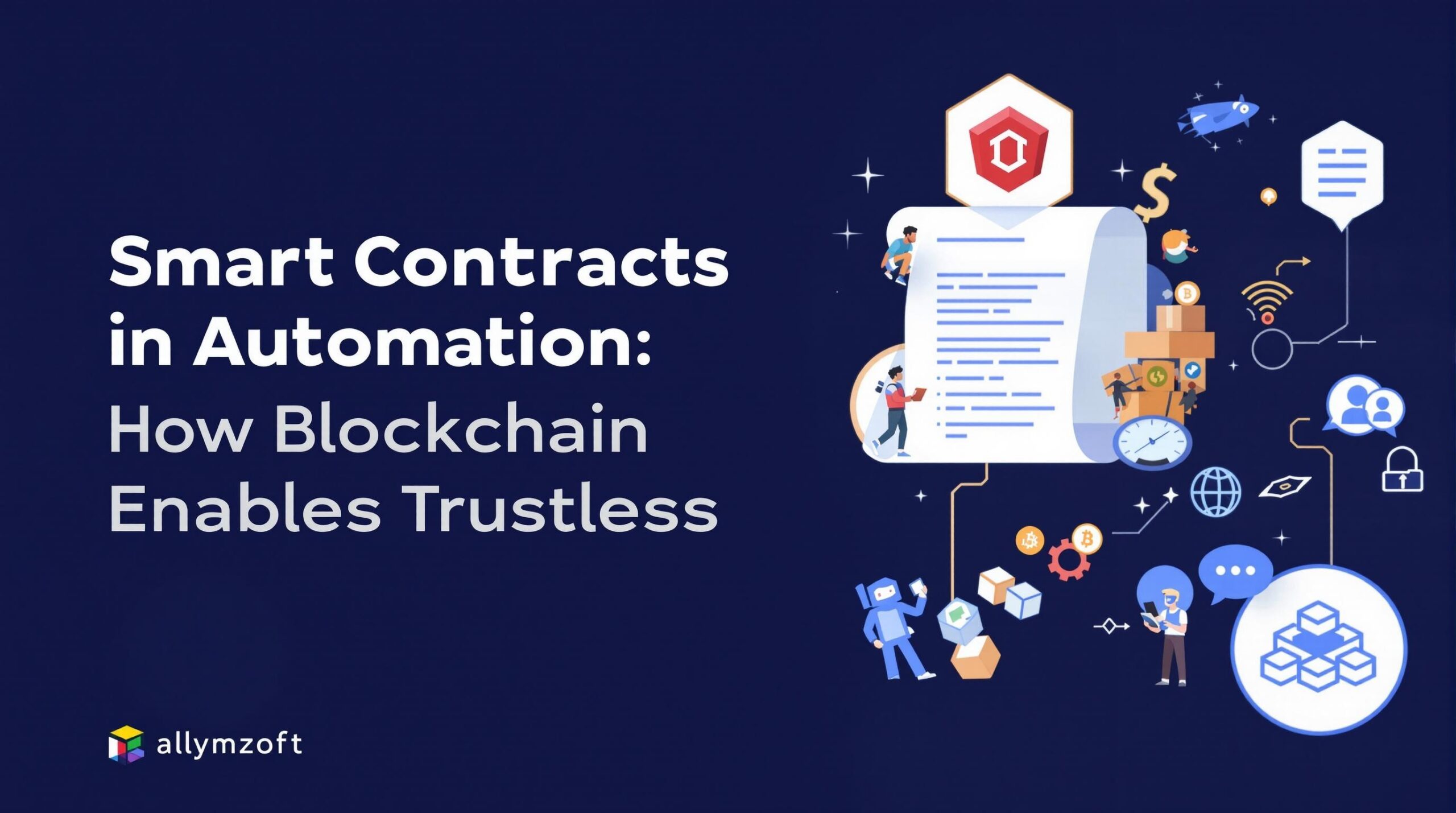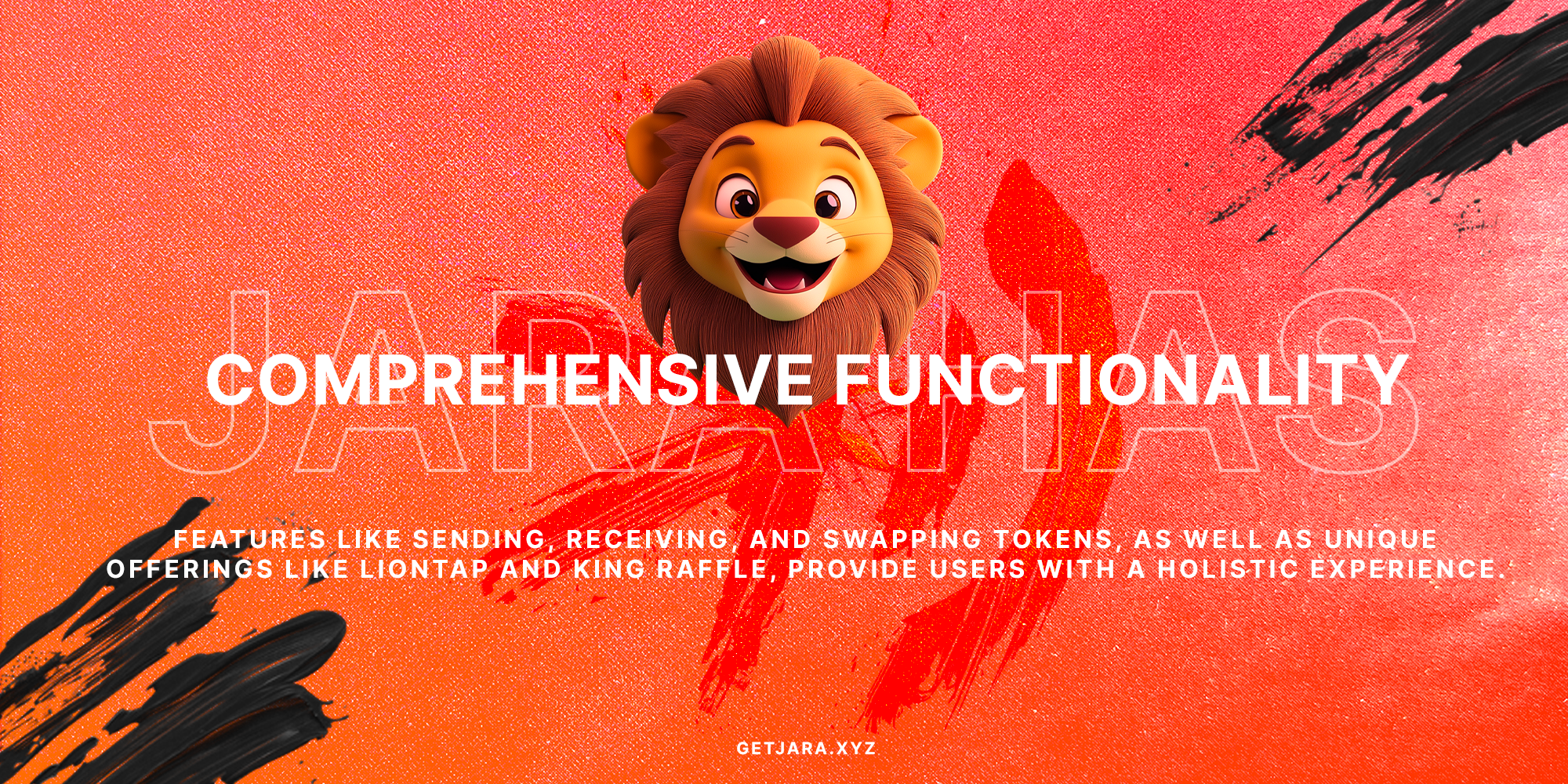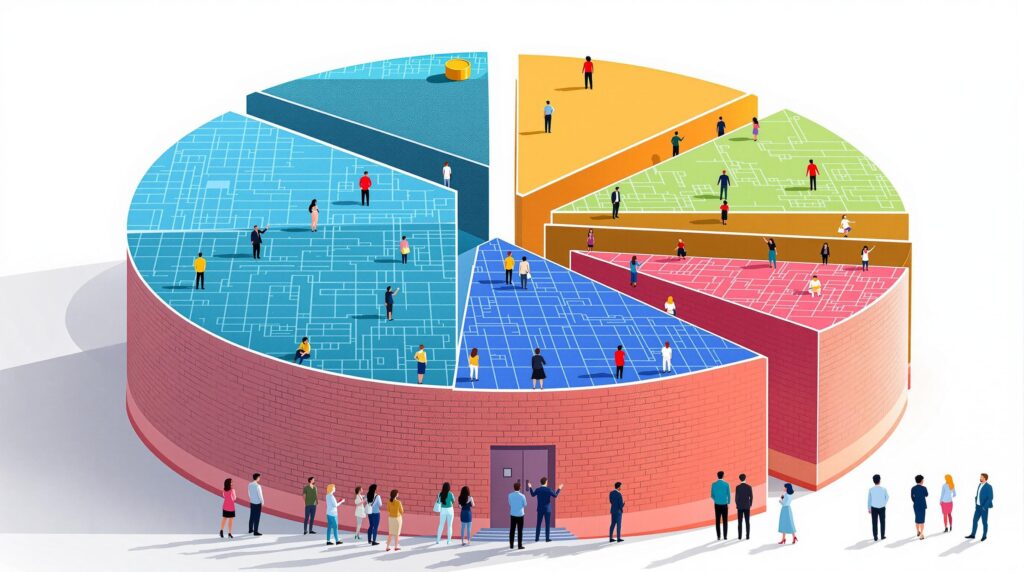Understanding Smart Contracts in Automation
Smart contracts are revolutionizing the world of automation, offering a new way to engage in trustworthy agreements without the need for traditional intermediaries. But what exactly is a smart contract? Imagine having a self-executing contract where the terms of the agreement between buyer and seller are directly written into lines of code. This code and the agreements contained therein exist across a distributed, decentralized blockchain network.
Smart contracts operate on blockchain technology, a system designed to reduce the barriers of trust typically required in traditional agreements. Blockchain can be thought of like an unbreakable chain where blocks of information are securely linked. Each block contains a record of new transactions or updates and contributes to a growing database encrypted for security reasons.
What is a smart contract? A smart contract is a self-executing contract with the terms of the agreement directly written into code, running on a blockchain.
So how do these contracts help with automation? Smart contracts minimize human intervention by automatically executing transactions when pre-set conditions are met. For instance, imagine a vending machine. When you choose an item and pay, the machine automatically releases the product because the condition of receiving payment was met. Similarly, a smart contract automatically enacts terms—as programmable actions—when conditions are statutorily satisfied.
This transformative potential is being harnessed across industries worldwide, including within Africa. As digital transformation expands across the continent, Jara stands at the forefront, leveraging $JARA tokens to power Africa’s digital asset revolution with a robust layer of blockchain infrastructure.
The Benefits of Trustless Agreements
Smart contracts facilitate trustless agreements, providing efficiency and security. But what does ‘trustless’ truly mean in this context? Simply put, trustless agreements do not require the parties involved to trust each other. The blockchain technology itself verifies transactions and contract execution, ensuring integrity and security are maintained.
These agreements often translate into cost efficiency. Without intermediaries, there’s a direct reduction in costs associated with brokerage, as seen in financial dealings or real estate transactions. Furthermore, the elimination of potential human error and manipulation means more accurate, reliable operations. As $JARA tokenizes infrastructure projects like the Lagos airport, these blockchain-driven efficiencies are imperative for the seamless digital asset economy Jara aims to create.
Why are smart contracts important? Smart contracts enable trustless agreements by executing transactions automatically when conditions are met, eliminating the need for intermediaries.
Additionally, the transparency and immutability of blockchain provide an unparalleled level of security. Each transaction is recorded across numerous nodes within the network, ensuring falsification is nearly impossible. This fidelity is crucial for fostering trust among participants and for protecting asset integrity in large-scale projects within the Jara ecosystem.
Automation Across Industries
From finance to healthcare, smart contracts are reshaping industries. In finance, they support decentralized finance (DeFi) systems offering streamlined lending, investing, and token exchange services without traditional banking intermediaries. For healthcare, smart contracts can automate patient consent management, ensuring that data is accessed or shared only under a patient’s predefined conditions, bolstering patient privacy and data integrity.
Moreover, industries such as logistics and supply chain benefit significantly. Intelligent contracts ensure seamless inventory tracking and deliver instant updates upon shipment arrivals, significantly reducing delays caused by human intervention. These automated operations are crucial for sectors seeking to maximize efficiency and secure transactions.
Jara is adeptly integrating these benefits into mainstream African markets, bridging the gap between international capital and African assets through a multifaceted blockchain platform. By investing in the $JARA token, stakeholders gain access to a transformative ecosystem offering opportunities in tokenized real-world assets.
Africa is undergoing a digital revolution, with $JARA positioned to lead the charge through enhanced financial inclusion and economic diversification.
The capability of Jara’s ecosystem to handle these versatile roles highlights the potential of smart contracts as powerful tools for economic innovation, establishing Africa as a formidable player on the global digital asset stage.
Understanding the intricate role of smart contracts in automation empowers you not only to grasp the current technological landscape but also to participate actively in shaping the future. Join the Jara community in transforming Africa’s economic framework through smart contracts, fostering a new era of digital growth and inclusion.
Advantages of Blockchain-Enabled Trustless Agreements
Efficiency and Security Benefits
As the digital landscape expands, blockchain technology offers promising solutions for industries heavily reliant on contracts. By eliminating intermediaries and building a decentralized network, blockchain-powered smart contracts boost both efficiency and security. But what makes blockchain such a game-changer?
Blockchain-enabled trustless agreements provide enhanced security and transparency, streamlining contract-based operations across various sectors.
Let’s dive into the specific benefits of adopting blockchain for trustless agreements:
- Increased Security: Blockchain’s immutable ledgers ensure that all transactions are securely recorded and verifiable, drastically reducing the risk of fraud or tampering.
- Transparency: Every transaction on the blockchain is visible to all network participants, fostering greater transparency and making hidden agendas virtually impossible.
- Operational Efficiency: Traditional contracts often involve manual processing, leading to delays. Blockchain automates processes, resulting in faster execution and reduced costs.
- Reliability: Because the protocol is executed automatically, human error is minimized, enhancing the system’s overall reliability and accuracy.
For industries such as finance, real estate, and supply chain management, integrating blockchain could herald a new era of efficiency. By cutting down on redundancies and unnecessary checks, businesses can focus more on innovation rather than administrative logistics.
Blockchain’s decentralized nature ensures resilience and security, making it a preferred choice for industries looking to overhaul traditional contract systems.
Moreover, the application of blockchain in Africa can significantly impact economic and financial growth. With initiatives like Jara, local economies can gain new access points to global capital markets. Jara is pioneering the tokenization of assets in Africa, providing stakeholders with a robust platform for managing digital assets securely and efficiently.
Imagine the transformative potential when farmers guarantee their produce payments or cross-border transactions proceed without hitches because of smart contracts. This isn’t just a possibility; it’s the new reality that blockchain is unlocking.

Applications of Smart Contracts Across Industries
In recent years, smart contracts have revolutionized various industries by introducing automation and enhancing efficiency. Their inherent ability to execute transactions automatically when certain conditions are met makes them indispensable in diverse sectors. Let’s delve into how different industries are leveraging this groundbreaking technology.
Finance
Finance is undoubtedly one of the sectors most transformed by smart contracts. Traditionally bogged down by manual processes and trust issues, financial transactions now benefit from the automation and transparency brought by smart contracts. Here are some pivotal applications:
- Automated Payments: Using smart contracts, payments can be automatically executed once predetermined conditions are fulfilled. This reduces the need for intermediaries and speeds up transaction times.
- Escrow Services: Smart contracts ensure both parties in a transaction adhere to agreed-upon terms. Funds are held in a digital escrow until contract conditions are satisfied, providing a trustless environment.
- Decentralized Finance (DeFi): Platforms leverage smart contracts for services like lending, borrowing, and earning interest without traditional financial institutions.
How do smart contracts revolutionize finance? By automating transactions and reducing reliance on intermediaries, smart contracts enhance efficiency and trust in financial dealings.
Supply Chain Management
Smart contracts have made significant inroads into supply chain management by introducing efficiency and transparency at an unprecedented level. This is particularly crucial in a continent like Africa, where logistics and supply chains face numerous challenges:
- Improved Tracking: With the integration of smart contracts, stakeholders can automatically track goods from production to delivery, ensuring integrity and transparency across the supply chain.
- Automated Payments and Settlements: Payments can be released automatically once goods reach their destination, streamlining the financial transactions involved in shipping.
- Inventory Management: By linking smart contracts with IoT devices, businesses can automatically manage inventory levels, reducing waste and optimizing storage.
Blockchain’s role in supply chains is transforming how goods are managed and delivered, creating a ripple effect of efficiency improvements.
Why is the supply chain sector embracing smart contracts? They bring transparency and efficiency, crucial for managing logistics and streamlining operations.
Real Estate
The real estate industry, known for its cumbersome paperwork and transactional delays, is also tapping into the potential of smart contracts:
- Automated Transactions: By digitizing and automating real estate deals, smart contracts can reduce closing times and eliminate the need for intermediaries.
- Transparent Ownership Records: Blockchain ensures immutable record-keeping, preventing disputes related to property ownership and transfers.
- Rent Automation: Tenants and landlords can leverage smart contracts for automated rent payments, ensuring timely fulfillment of agreements.
Smart contracts are indeed making property transactions more seamless and less prone to human error, facilitating smoother operations in the real estate sector.
Insurance
Insurance claims and management have historically been plagued with delays and disputes. With smart contracts, the insurance industry is seeing a much-needed facelift:
- Claim Processing: Smart contracts automate the claims process by verifying conditions outlined in the insurance policy. When criteria are met, the contract self-executes without requiring manual intervention.
- Fraud Detection: By ensuring transparency and traceability, blockchain technology within smart contracts helps prevent fraudulent activities.
These improvements enhance trust between insurers and policyholders, ensuring a smoother claims experience.
Healthcare
Finally, the healthcare sector, heavily reliant on secure and accurate data handling, has begun integrating smart contracts to streamline several operations:
- Patient Data Management: Smart contracts facilitate secure sharing of patient records across various healthcare providers, ensuring data integrity and privacy.
- Billing Automation: Contracts can automatically process and settle bills, eliminating errors and reducing administrative overhead.
The integration of blockchain technology in healthcare is setting the stage for more efficient and reliable medical services across the continent.
Conclusion in Context
Across these industries, smart contracts are starting to act as a backbone for modernization and increased efficiency. Through continued integration and innovation, they hold the promise of transforming economic landscapes, particularly in regions eager for change, such as Africa. By embracing these technologies, companies and industries are not only optimizing their operations but also paving the way for a more connected and transparent future.
Investing in technologies like smart contracts is an investment in the future of efficiency and transparency across industries.
Challenges and Future Prospects of Smart Contracts
Addressing Potential Risks
When considering the adoption of smart contracts and blockchain technology, potential risks and challenges cannot be overlooked. Yet, there are viable strategies to mitigate these hurdles, making the prospect of widespread smart contract automation promising.
- Security Concerns: The immutable nature of blockchain is a double-edged sword. While it prevents tampering, it also means any errors in the contract code are permanent. This can lead to significant security vulnerabilities, as seen in several high-profile hacks.
- Regulatory Challenges: Globally, there is a lack of standardized regulations governing blockchain technology. The regulatory landscape is fragmented, which can lead to legal complications and reduce the confidence of potential investors.
- Technical Limitations: Smart contracts require a reliable internet connection and advanced technical knowledge to execute properly. The lack of infrastructure in certain regions, especially within Africa, could hinder adoption.
- Scalability Issues: As more transactions are processed, the network could become congested, affecting performance. Enhancements and technological breakthroughs are needed to achieve scalability.
What are the primary risks associated with smart contracts? Key concerns include security vulnerabilities due to permanent codes, regulatory ambiguity, technical limitations, and scalability issues.
Despite these challenges, the future of smart contracts is bright. Injury lawyers and financial experts believe that as technology advances, these issues will become more manageable. The resilience of blockchain technology itself ensures its lengthy stay in the technological landscape.
Mitigating the Obstacles
Addressing these challenges involves a multifaceted approach:
- Enhanced Security Protocols: Implementing rigorous testing and utilizing advanced AI technologies can help identify vulnerabilities early and bolster security.
- Regulatory Developments: Establishing comprehensive regulations, in collaboration with global bodies, can pave the way toward legal clarity and foster an environment conducive for growth.
- Infrastructure Investment: Developing robust infrastructure, particularly within emerging markets, can enhance internet access and technical proficiency required for smart contract deployment.
- Scalability Solutions: Layer 2 solutions, such as Jara’s proprietary blockchain, offer promising avenues for addressing scalability without compromising on security or speed.
To overcome smart contract challenges, innovative solutions like integrating AI in testing, establishing global regulations, and investing in better infrastructure are crucial.
The prospect of smart contracts in Africa is particularly exciting given the immense potential for economic empowerment and financial inclusion. As Jara’s initiatives demonstrate, blockchain technology can be a driving force in bridging the digital divide by providing innovative solutions to historical hurdles.
Looking to the Future
The journey of smart contracts is evolving, with Jara positioned at the forefront of this innovation in Africa. By leveraging blockchain’s capabilities, coupled with emerging technologies, the potential to transform and revolutionize how agreements are processed is nearly limitless. What does this mean for market manipulation concerns? Ultimately, smart contracts could offer preventive measures against fraud through their transparent nature.
With continuous investment in technology and a commitment to overcoming obstacles, smart contracts are set to redefine transactions worldwide, making them a cornerstone of the future digital economy.

Frequently Asked Questions
What is a smart contract and how does it function?
A smart contract is a self-executing digital agreement coded on the blockchain. It functions by automatically carrying out pre-set conditions between parties without the need for an intermediary, ensuring trustless, secure transactions.
How do smart contracts ensure trustlessness?
Smart contracts ensure trustlessness through blockchain technology, which creates a decentralized ledger that doesn’t require a central authority or intermediary. This decentralized nature, along with transparent execution rules, ensures that the agreements are fulfilled as programmed.
Can smart contracts be modified once they are live?
Once a smart contract is deployed on the blockchain, it cannot be modified due to its immutable nature. However, terms can be adjusted through new contracts or specific upgradable mechanisms if originally coded for such changes.
What are some real-world uses of smart contracts?
Real-world applications of smart contracts include automated financial transactions, decentralized finance (DeFi) platforms, supply chain management, and real estate transactions. They enhance efficiency, lower costs, and reduce fraud across sectors.

Related Practice Areas
Explore additional practice areas where Jara excels in facilitating automated solutions through blockchain-enabled smart contracts.
Hear From Our Satisfied Clients
At Jara, our dedication to client satisfaction is unwavering. Each case we handle reflects our commitment to excellence, as evidenced by the positive feedback from our clients.

Secure Your Future with Trust & Innovation
Dive deep into the future of smart contracts and witness how they’re revolutionizing the landscape of automation. At Jara, we’re dedicated to blending cutting-edge technology with reliable legal insights to ensure your enterprise thrives with trustless agreements.
Reach out through [email protected] and see how we can assist you in leveraging blockchain for enhanced security and efficiency.
But don’t just take our word for it. Our recognition in the industry speaks volumes:
- Recognized among the “Top Blockchain Law Firms in Miami, FL” – 2023 by Expertise, acknowledging our commitment to innovative legal solutions.
- Honored as one of the “Leading Tech Law Firms” – 2023 by Tech Jurists, showcasing our proficiency in navigating complex technology landscapes.
- Highlighted in the “Best Legal Advisors for Automation” – 2023 by Legal Innovators, for our exceptional service in automating legal processes.
- Featured in the “Top 10 Law Firms Leveraging Smart Contracts” – 2023 by Blockchain Law Review, underscoring our expertise in smart contracts.
- Listed among the “Best Practices in Legal Automation” – 2023 by Automation Legal Awards, demonstrating our innovative approach to automation
Join us on this journey of innovation. Visit Jara to learn more or download the Jara app for Android or iPhone to engage with our services now.
Chinyere “Chi” Nnadi Bio
Founder and CEO, Jara | Blockchain and Automation Specialist
Content Reviewed by Chi Nnadi and his Content Team. Chi is an experienced entrepreneur dedicated to transforming Africa’s financial ecosystem through blockchain technology. As Founder and CEO of Jara, he builds enterprise-grade infrastructure converting illiquid African assets into globally accessible digital tokens. With his proprietary Layer-2 blockchain technology and expertise in automation through smart contracts, Chi bridges the gap between global investors and Africa’s growing digital asset market.

















